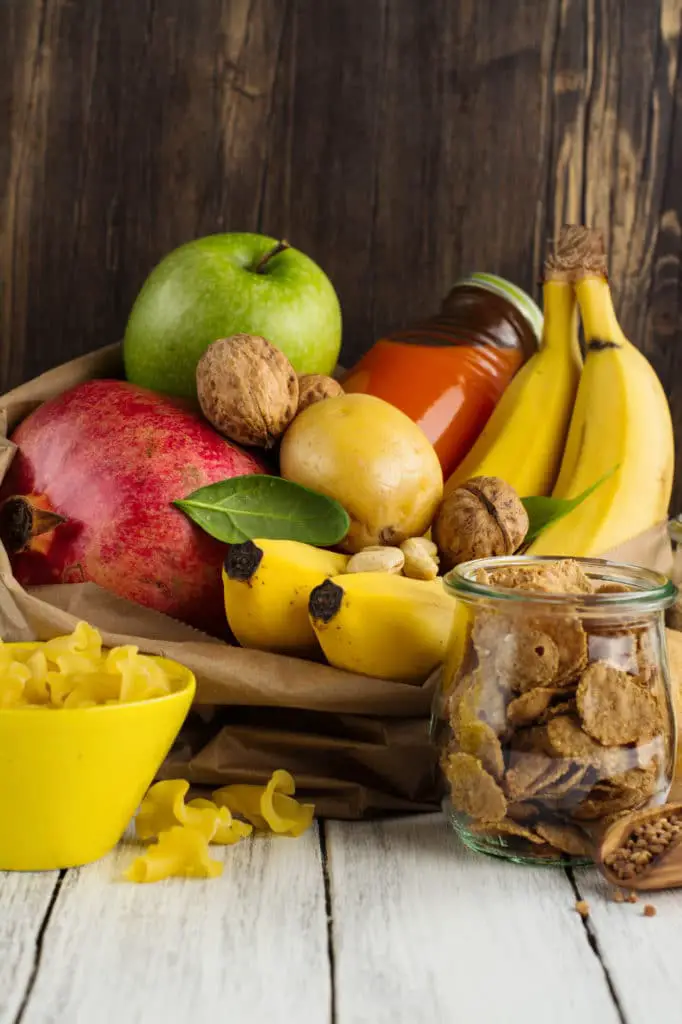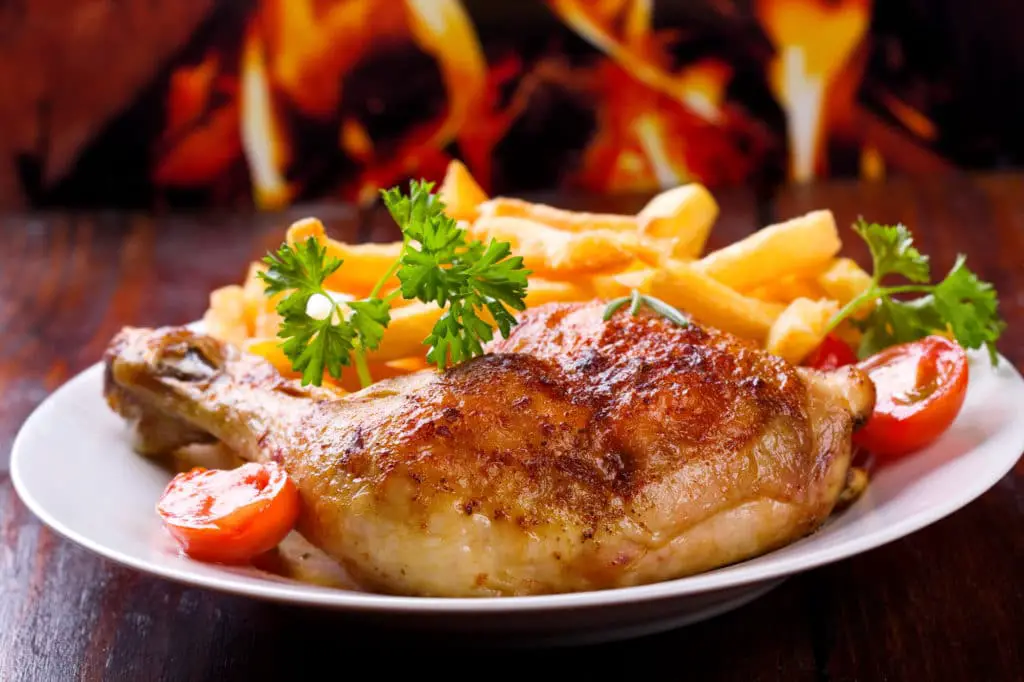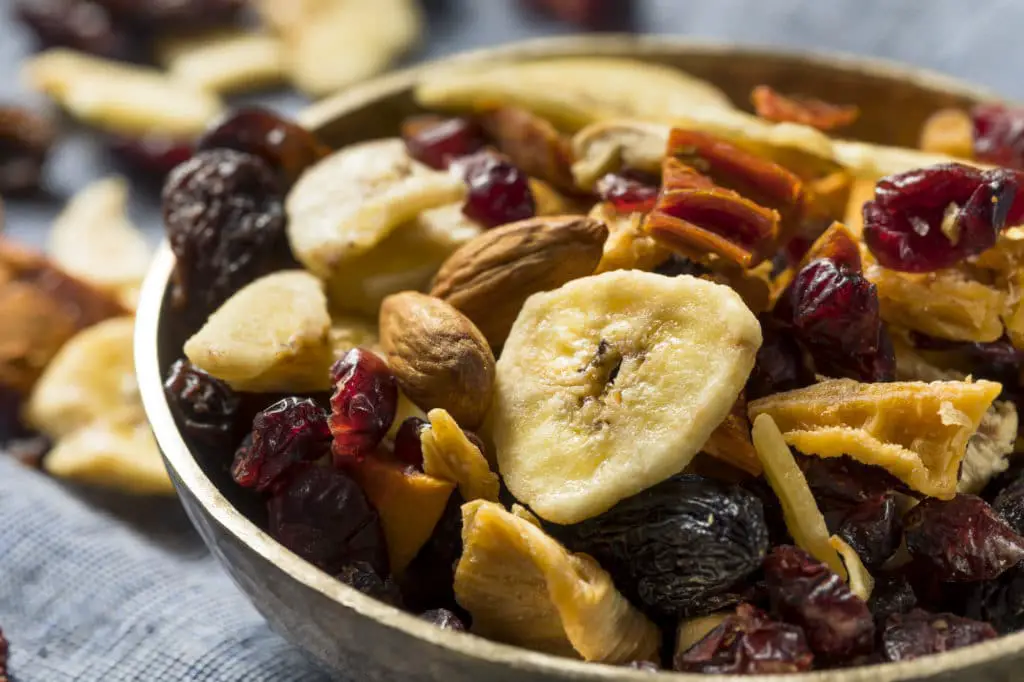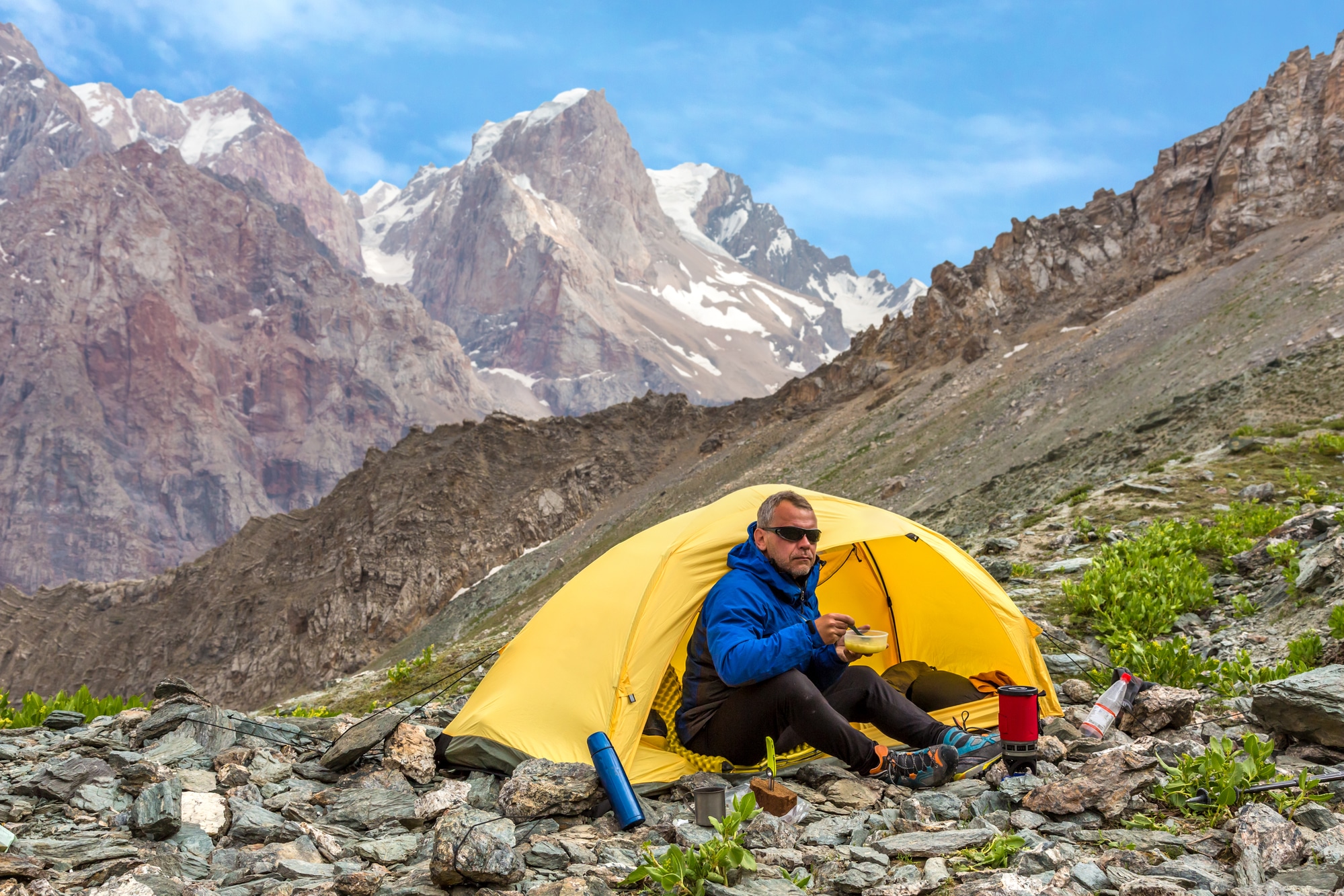Have you ever gotten home from a great hike, feeling fantastic, only to crash hard from hunger? You may be asking yourself, “why am I so hungry after hiking?”
‘Hiker hunger’ is a pretty common experience amongst hikers. There are many different reasons why it may be happening to you. We’re going to explore why it can happen and what you can do to help prevent it from tempting you to blow through your calorie budget for the day.
Table of Contents
Reasons For Being Hungry After Hiking
Understanding the reasons behind the hiker hunger phenomena will help you begin to break that cycle of hiking and overeating and set your body and your hike up for success. So let’s first identify some of the most common reasons why hiker hunger happens in the first place.
1: Not Eating Right The Night Before

What you eat the night before your hike is just as important as what you eat the day of your hike. If you don’t eat enough or don’t eat enough of the right types of food, your body will be working that much harder during your hike.
Your goal the night before your hike should be to eat foods rich in complex carbohydrates. Your body digests complex carbohydrates slowly and steadily over a more extended period.
That means that it will be releasing glucose (sugar) into your bloodstream throughout your hike. That energy will fuel your body and keep you feeling less hungry throughout the day.
Popular pre-hike dinners are usually pasta-based. According to the American Heart Association, you should try to eat whole grain pasta because they are rich in fiber and will help you feel full longer.
Other foods that are rich in complex carbohydrates:
- Starchy vegetables such as corn or potatoes
- Oats
- Lentils and other beans
- Quinoa
2: Dehydration
Have you ever heard the term, ‘win with water’? It’s true; you can win with drinking water. Most people don’t drink enough water. Drinking water helps you feel less hungry and helps your body perform at its best.
Water is essential for our bodies to function correctly. According to Harvard scientists, water aids in:
- Digestion
- Carries nutrients and oxygen to your cells
- Stabilizes blood pressure
- Cushions joints
- Maintains electrolyte balance
- Regulates body temperature
That’s a lot of important stuff that you need for hiking. Make sure you drink plenty of water the night before your hike, during your hike, and after your hike. Drinking water will help you feel less hungry overall, even if your stomach is empty, not to mention keeping you hydrated while your body is working extra hard.
3: Not Eating A Good Breakfast

Before you start your hike, you’ll want to make sure you eat a healthy breakfast to start you out on the right foot. Not eating enough food or not eating the right kind of food for breakfast can set you up for excessive hunger after your hike.
Even if you aren’t a big breakfast eater, you should try to make yourself eat breakfast on the morning of a hike. Aim for a breakfast with complex carbohydrates, healthy fats, and protein — think legumes, whole grains, fruits, nuts, eggs, etc.
4: Not Eating Enough During Your Hike
If you didn’t bring enough snacks with you on your hike or just didn’t eat the snacks you brought, you will probably feel extra hungry after your hike. Your body is burning through calories, and if you don’t give it what it needs, it will definitely let you know when your hike is done.
Great snacks to bring for your hikes are protein bars, trail mix, dried fruit, jerky, etc. You should try to focus on a blend of proteins, sugars, and high-quality fats that your body can use immediately. Avoid candy bars and junk food though, because you may experience an energy crash after your initial sugar high as well as providing no meaningful nutrition.
If you don’t feel hungry during your hike, you should still try to force yourself to eat something and make sure to drink water to cut down on your after-hike hunger.
5: Burning More Calories Than You Expected
Another reason you may experience extreme hunger after hiking is that you simply worked a lot hard than you were expecting.
No matter how great your trail app is, there is always some room for error on trail mileage and elevation for your hike. There’s a good chance you went a couple of miles longer or a few hundred feet higher than you were anticipating when first planning your hike.
6: Poor nutrition
Depending on your diet, if you experience extreme hunger after a hike, your diet could be the culprit. Diets that include a lot of simple carbs and processed foods don’t satisfy your body and may make you feel hungrier more often, especially after a hard workout.
You may want to look into a more serious nutrition overhaul if you think this could be why you feel so hungry after your hikes.
Why Does Hiking Suppress Your Appetite?
Appetite suppression can be an issue amongst hikers, especially hikers in higher altitude terrains or on longer backpacking trips. Many hikers have reported struggling with no appetite and having to force themselves to eat to refuel their bodies on hikes.
Some of the reasons for this can be:
Altitude: According to High Altitude Health, being at a higher altitude actually causes your body to secrete a hormone called Leptin which, when our bodies secrete it reduces hunger.
Increased level of cardiovascular exercise: Studies have shown that cardiovascular exercise can produce hormones that make us less hungry.
Dehydration: Severe dehydration can cause feelings of nausea as well as suppress your appetite.
Digestive system shutdown: There are many PCT and AT thru hikers who report struggling with no appetite. Their bodies are working so hard that their digestive systems shut down to conserve energy. Most report this passing after a few weeks as their bodies adapt to their increased activity levels.
What To Eat Once You Finish A Hike

When you finish a hike your body is craving protein. Your muscles are tired and they will go into repair mode. Proteins are the building blocks that will help your body recover from your hike.
Some healthy protein options after hiking include:
- Turkey
- Fish and other seafood
- Legumes
- Chicken
You may also want to consider adding some anti-inflammatory spices into your meal. Your muscles and joints may experience inflammation after working so hard, and these additions can help:
- Garlic
- Curry Powder
- Tumeric
- Ginger
To avoid feeling really hungry after your hike try to eat within an hour or two to help your body recover from its workout.
Should You Eat Before A Hike?
Yes, you should absolutely eat before a hike. Whether you are starting your hike at five in the morning or one in the afternoon, eating will give your body the energy it needs to do its best.
Just like your night before meal, you’ll want to focus on complex carbs instead of simple carbs. Complex carbs consist of whole grains and fiber. Simple carbs are mainly processed sugars that are broken down quickly but leave you crashing not long afterward.
Consider including healthy fruits and vegetables too. Both contain lots of fiber and that means they will help you feel fuller longer.
Some ideas for your pre-hike breakfast:
- Steel-cut oatmeal
- Eggs
- Fresh fruit or vegetables
- Peanut butter
- Whole grains
- Greek yogurt
A little coffee is okay too, but caffeine is a diuretic, which means it dehydrates you faster so don’t forget to drink lots of water!
Best Snack Options For During A Hike

Hiking snacks are a favorite topic for hikers. Some have their tried and true snacks while others tend to wing it with whatever happens to be in the cupboards that day. Whether you consider hiking snacks an art form or a nuisance, here are just a few great ideas to help you choose the right snacks to keep your body moving on your hike:
- Trail mix
- Nuts and seeds
- Dehydrated fruits
- Protein bars
- Peanut butter
- Apples and bananas
- Whole-grain crackers and cheese
- Tuna packets
- Whole-grain sandwiches
When planning your hiking snacks, the main thing to consider is to avoid highly processed foods — think complex carbohydrates, lean proteins, healthy fats. Your muscles are already working hard, don’t make your digestive system work harder too.
How Much Food Should I Bring On My Hike?
Figuring out how much food you should bring on your hike can take some finessing. If you’re new to hiking, it’s better to over guess than to not bring enough. As you become more familiar with hiking, what your capable of doing, and become a better planner in general, your choices will change.
Some things to take into consideration when planning for how much food to bring on your hike should include:
Distance: The average person can hike a mile in about twenty to thirty minutes. If your hike is ten miles long, you would guesstimate that it will take you about five hours.
Elevation: If your ten-mile hike includes intense elevation gains, you will quickly find that thirty minutes can easily turn into forty-five or even sixty minutes per mile! If six miles of your hike is going up 1300 feet, and the other half is going back down that elevation, you should probably add another two hours onto your estimate.
Terrain: Walking over rocky or root-covered paths will slow you down compared to a smooth dirt pathway. Try to read reviews of other hiker’s experiences to learn as much about the trail before you head out.
The number of people: Are you packing for just yourself or others? If you have hiking companions that you are planning food for, make sure to account for that in your packing.
Remember, it’s always better to overestimate than to underestimate how much food you will need. Perhaps your hike ended up being longer or harder than you thought. Maybe there was an unexpected event like getting lost and being stuck all night outdoors.
Prepare for the worst but expect the best. You won’t need it most likely, but you’ll be glad to have it if you do.
Final Thoughts
Many hikers indeed experience extreme hunger after their hikes. There are a lot of ways to help prevent this, including eating enough of the right foods before and during your hike as well as drinking plenty of water. Eating right, getting regular exercise, drinking plenty of water, and being prepared will help you curb your after-hike hunger.

